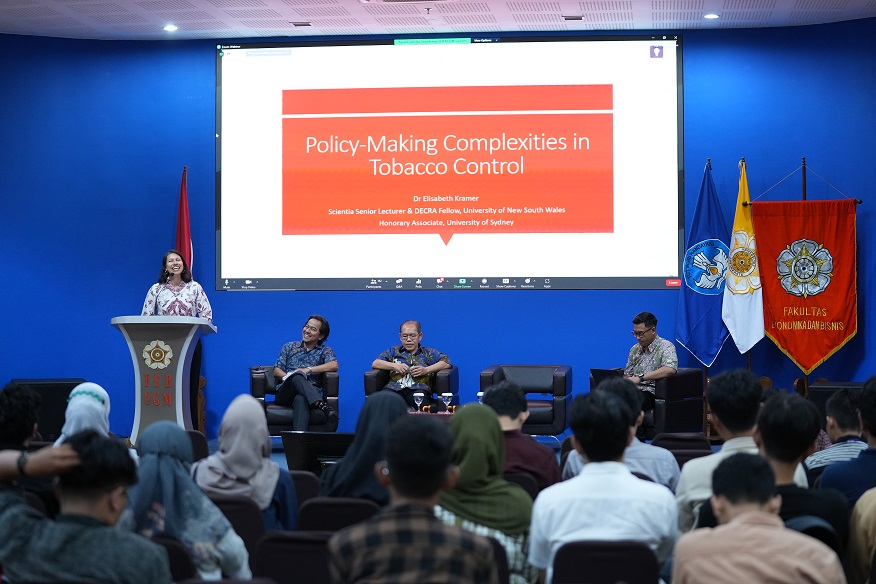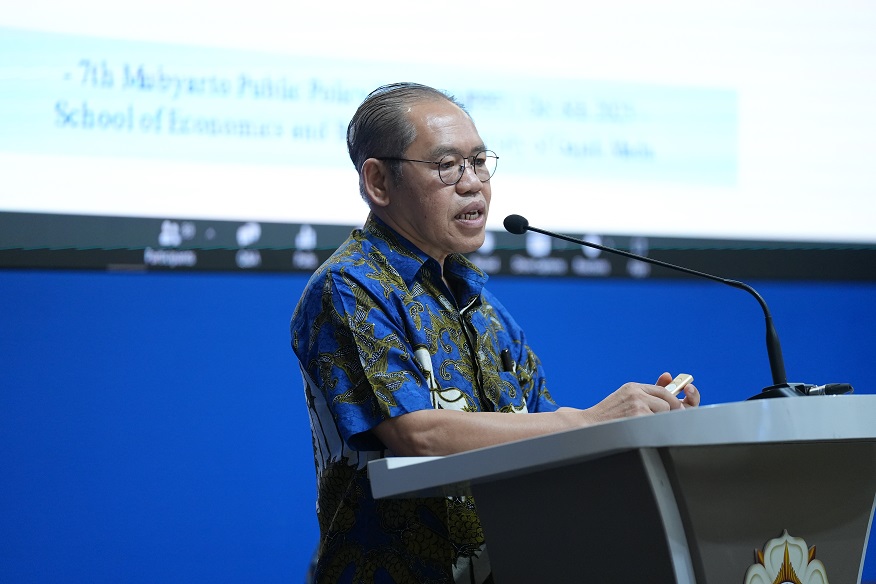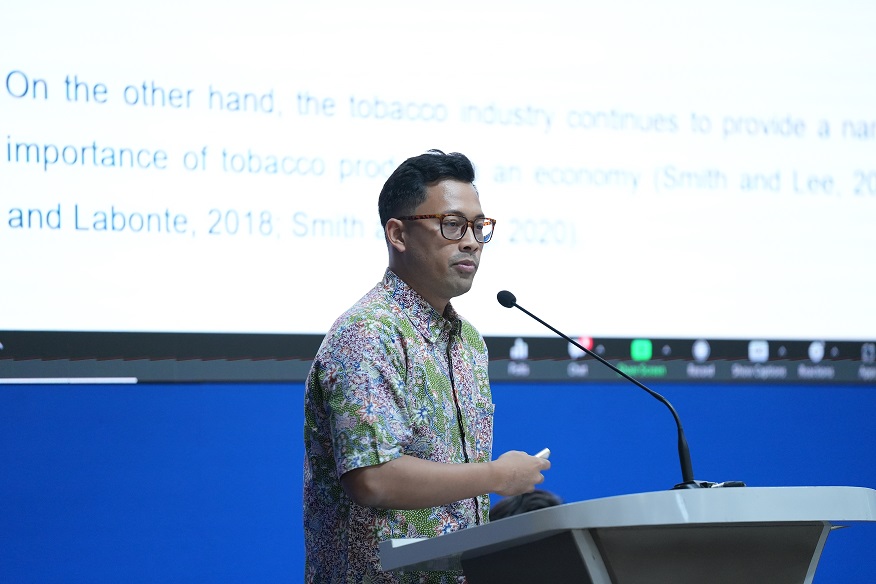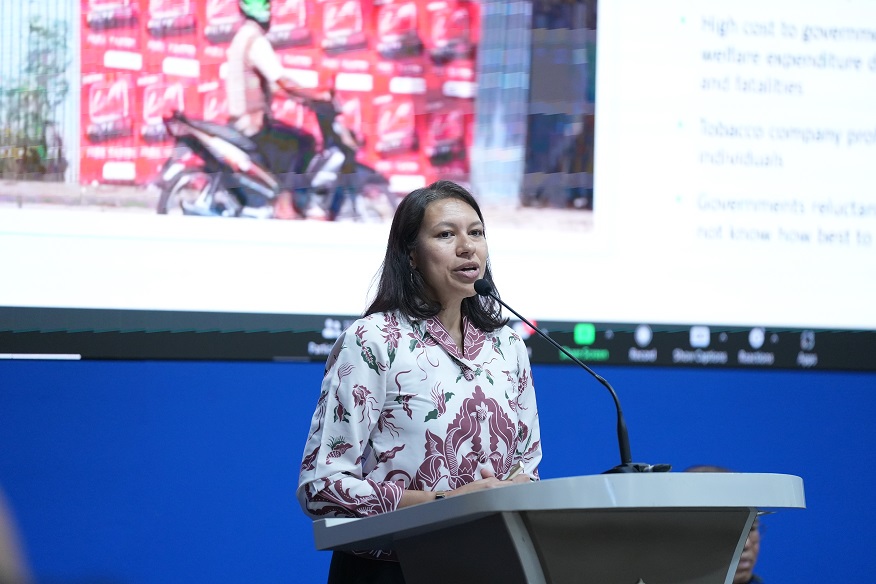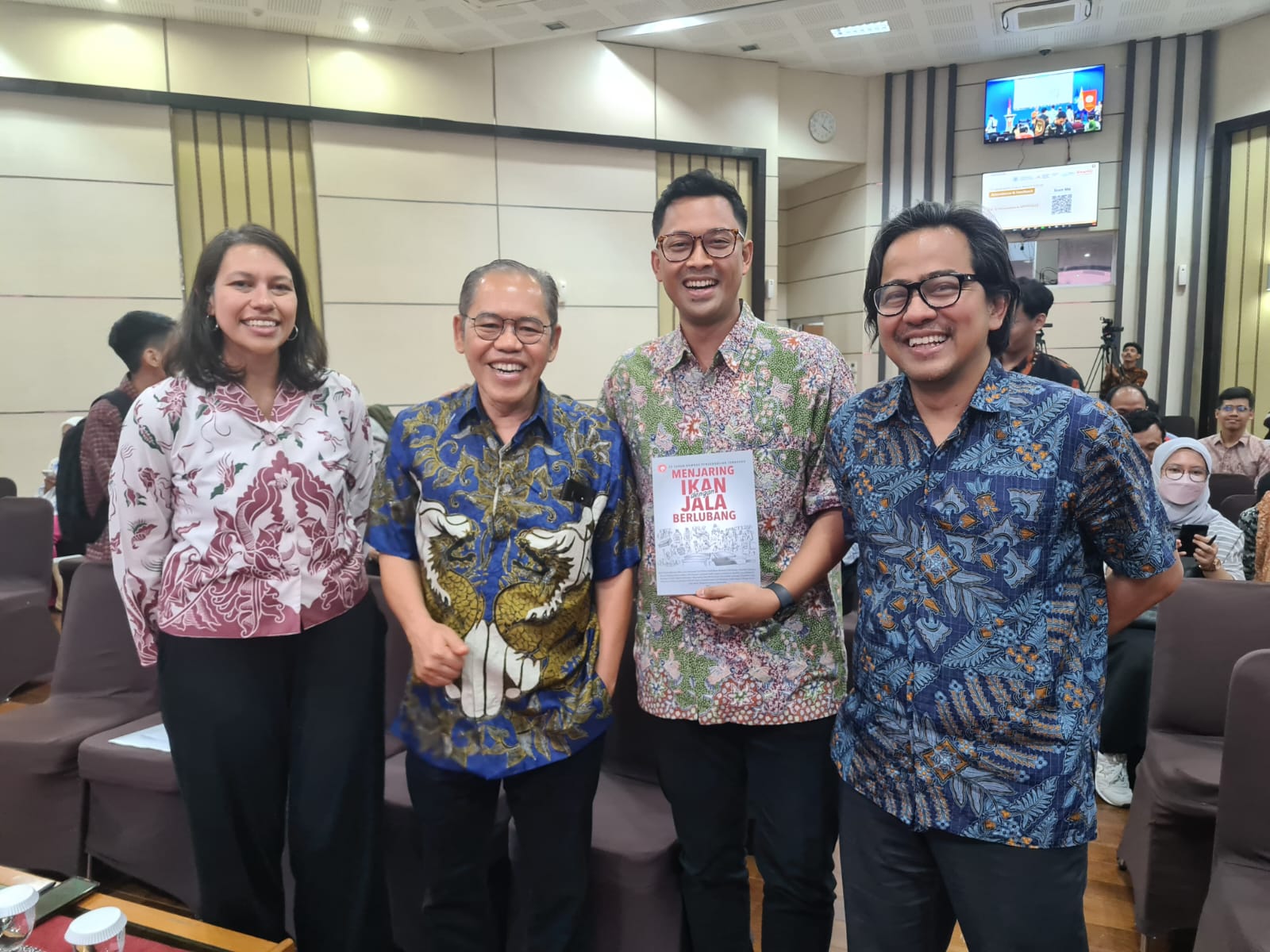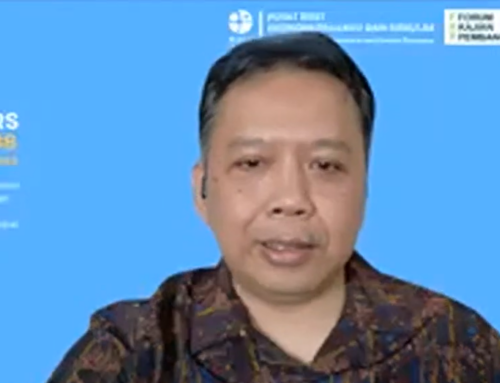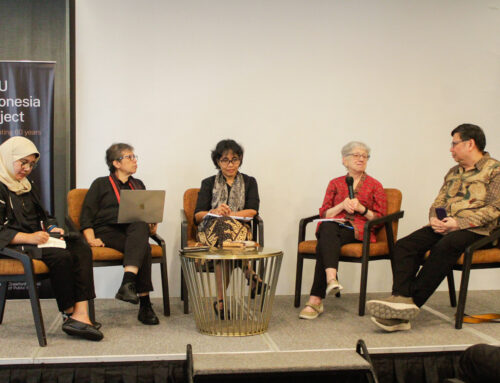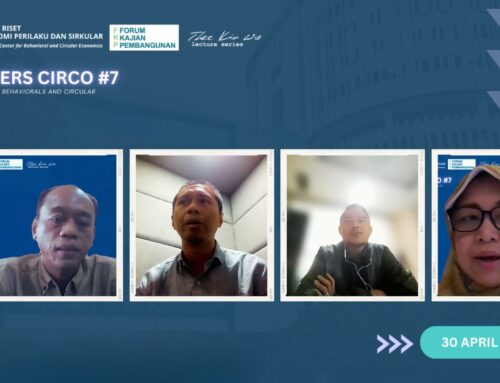FKP on Friday, 6 October 2023 hosted by Faculty of Economics and Business Universitas Gadjah Mada (FEB UGM) and ANU Indonesia Project. Speakers: Professor Hasbullah Thabrany (Chairperson of the National Committee for Tobacco Control), Dr Elisabeth Kramer (Senior Lecturer at the University of New South Wales), and Dr Gumilang Aryo Sahadewo (Associate Professor and Vice Dean for Research, Community Engagement, Collaboration, and Alumni Affairs at FEB UGM). Chair: Dr Firman Witoelar (ANU Indonesia Project).
In the last quarter of century, following the Asian Financial Crisis and the post-New Order political change, Indonesia has seen a series of policy reforms to address the challenges in the health sector. The nation faces existing challenges shaped by years of under-investment in the health sector and new challenges that come along with the health and epidemiological transitions Indonesia is experiencing. While some of the reforms, including the introduction of the universal health care, have met considerable success, other that were aimed to address long-standing issues in the sector stalled.
One area in which policy reforms has met limited success is in tobacco control, an area where the relevant policies extend much beyond the health sector, encompassing economic issues including taxes and employment, and involving a multitude of interests and actors. The 7th Mubyarto Public Policy Forum discussed where Indonesia currently stand on this complex issue and the challenges of moving through with reforms.
Indonesia stands as the only country in Asia that has yet to sign the FCTC (Framework Convention on Tobacco Control), despite a substantial evidence supporting the need for its implementation. The reason, argued Professor Hasbullah Thabrany, is that many policymakers mistakenly believe that the tobacco industry has brought prosperity to the people through tax revenue. Policymakers tend to focus solely on short-term revenue gains, while overlooking the potential long-term loss.
Indeed, the long-term loss from tobacco in Indonesia is high. While the death rate from smoking has significantly decreased in many other countries, it has remained stagnant in Indonesia. Interventions are needed to save lives, yet there are many complexities that act as barrier to interventions. Policy-making on tobacco control in Indonesia spans across various levels of government and institutions, relying on the political will and commitment of individuals within these organizations, explained Dr Elisabeth Kramer. Lis is currently undertaking research that aims to analyse the relationship between tobacco policy creation and networks of stakeholders, including lobbyists, with the aim to develop a tested analytical approach that can be used to explore policy environments for the regulation of harmful, but licit, industries.
Australia has had some success in controlling tobacco through policies that prohibits any advertising hat may encourage or persuade people to smoke or use tobacco products, a high cigarette tax, and laws that restrict tobacco sponsorships and the retail display of tobacco products. Lis suggested that putting some barriers between teenagers and cigarettes go a long way to preventing smoking in Indonesia.
Tobacco is touted as an indispensable economic commodity, but the numbers at the aggregate level tell a different story. Dr Gumilang Sahadewo showed evidence on the livelihoods of workers in the tobacco sector to support tobacco control policymaking. The contribution of tobacco to the economy is actually minimal, and the share of tobacco farming employment is less than 2% in most countries. Gilang’s research was previously presented in an FKP seminar in 2021 (report in Bahasa Indonesia).
About 50 people attended the seminar in person at Universitas Gadjah Mada (Yogyakarta) and 126 participated on Zoom. The seminar was also livestreamed on YouTube.
Ringkasan acara dalam Bahasa Indonesia dan Bahasa Inggris oleh FEB UGM.
About the Mubyarto Public Policy Forum. Since 2017, the Faculty of Economics and Business Universitas Gadjah Mada and the ANU Indonesia Project together hold the annual public policy forum series titled the Mubyarto Public Policy Forum. The annual public policy forum series is in honour of Professor Mubyarto, a prominent economist at Gadjah Mada University, who was one of Indonesia’s most influential intellectuals on the issue of rural development between the 1960s and 1990s. The goal of this forum is to stimulate debates on key development policy issues in Indonesia, particularly on agriculture, rural development and social and economic justice.
